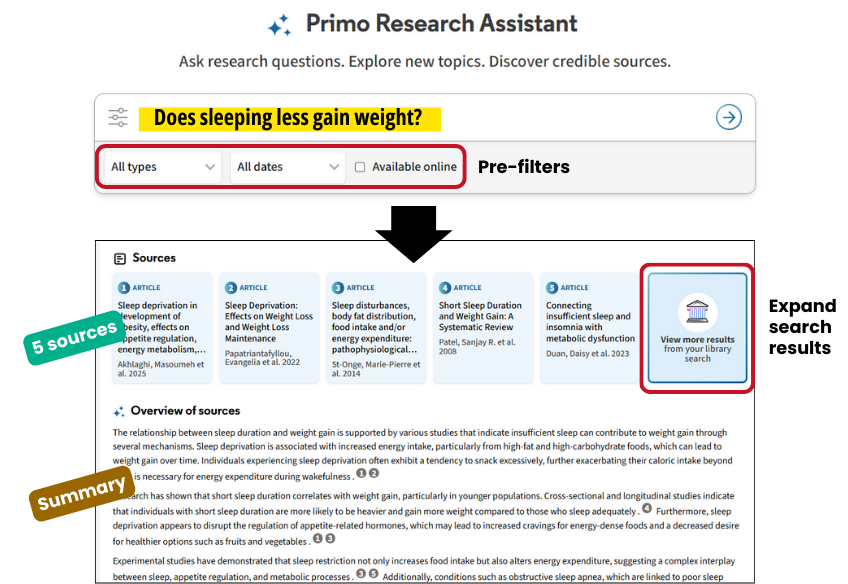Short Workshop (March 2025)
Primo Research Assistant is a GenAI tool that searches across HKUST Library's PowerSearch .
Current functions:
Note:
Details from vendor:

Use pre-filters to make your search more specific. E.g. type (peer-reviewed) and date (last 5 years).
|
👍 Pros |
👎 Cons / Limitations |
|
|---|---|---|
| Content Coverage |
|
|
| Search Capability |
|
|
| Quality of Generated Summary | - |
|